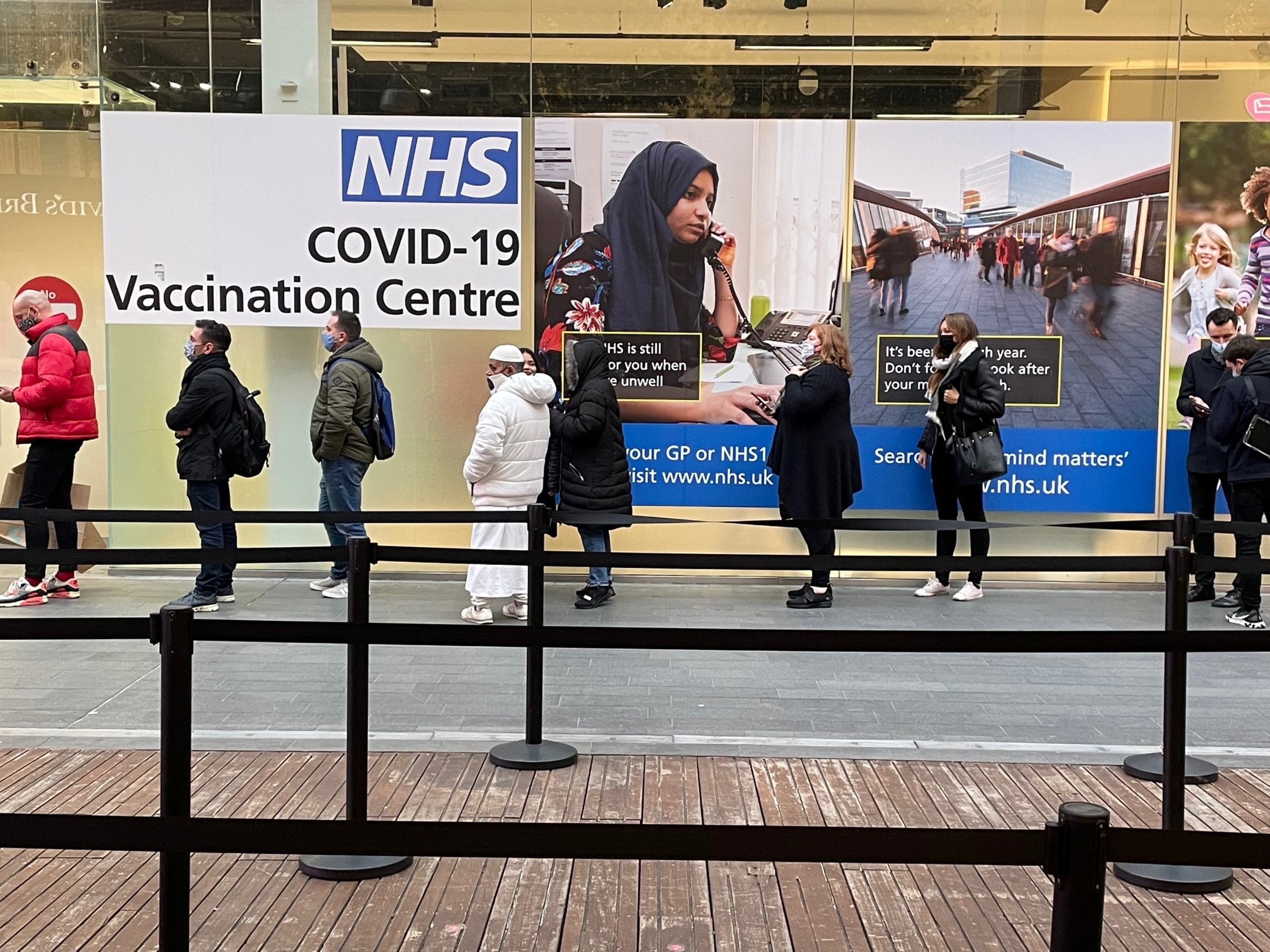Covid-19 in the UK: All today’s key data
A summary of the latest figures released before Christmas.

A large amount of Covid-19 data is being published on Thursday ahead of Christmas, including the latest infection levels, antibody estimates, absences for hospital staff and local vaccine take-up, along with the usual daily numbers for cases, hospital admissions and deaths.
Here is a summary of the data that has been published so far:
– UK vaccinations
A total of 840,038 booster and third doses of Covid-19 vaccine were reported in the UK on Wednesday – the lowest daily figure since December 15.
Some 31,684,926 booster and third doses have now been delivered in the UK, with 6,207,581 in the past seven days.
The total number of first doses of vaccine now stands at 51,617,091, while the total for second doses is 47,210,053, Government figures show.
– Covid-19 infection levels
Nearly 1.4 million people in private households in the UK had Covid-19 in the week ending December 16, the highest estimate since comparable figures began in autumn 2020, according to the Office for National Statistics (ONS).
This includes just over 1.2 million people in England or around one in 45 – up from one in 60 in the previous week.
In London, the latest estimate is even higher, at one in 30.
In Wales, around one in 55 people is estimated to have had Covid-19 in the week to December 16, unchanged from the previous week, while in Northern Ireland the latest estimate is one in 50 people, also unchanged from the previous week.
For Scotland the latest estimate is one in 70, up from one in 80.
– Test and Trace
A record 464,667 people tested positive for Covid-19 in England at least once in the week to December 15, up 47% on the previous week, according to the latest Test and Trace figures.
This is the highest number to test positive in a single week since the Test and Trace scheme began in May 2020.
– Covid-19 antibodies
Covid-19 antibody levels among adults in the UK are estimated to have reached a record high.
Some 95.0% of the adult population of England is likely to have tested positive for antibodies in the week beginning November 29, along with 95.0% in Scotland, 95.3% in Northern Ireland and 93.6% in Wales, according to the Office for National Statistics (ONS).
These are the highest figures for all four nations since the ONS began estimating antibody levels in December 2020.
There has been an increase in antibody positivity in those aged 65 and over across the UK since early October 2021, which the ONS said was “likely as a result of the vaccination booster programme”.
The presence of coronavirus antibodies suggests someone has had the infection in the past or has been vaccinated – though it can take between two and three weeks after infection or vaccination for the body to make enough antibodies to fight the virus.
– Hospital staff absences
A total of 3,874 NHS staff at acute hospital trusts in London were absent for Covid-19 reasons on December 19, more than double the number a week earlier (1,540) and more than three times the number at the start of the month (1,174), according to new figures from NHS England.
The total includes staff who were ill with Covid-19 or who were having to self-isolate.
Across England as a whole, 18,829 NHS staff at acute trusts were absent due to Covid-19 reasons on December 19, up 54% from 12,240 a week earlier and up 51% from 12,508 at the start of the month.
– Ambulance handover delays
One in five patients waited at least half-an-hour to be handed over from ambulance teams to A&E staff at hospitals in England last week.
A total of 16,410 delays of 30 minutes or more were recorded across all acute trusts in the week to December 19, representing 20% of all arrivals, according to NHS England figures.
This is down slightly from 23% of arrivals in the week to December 12.
Some 7% of arrivals last week (6,124) took more than 60 minutes to be handed over to A&E teams, down from 10% in the previous week.
A handover delay does not always mean a patient has waited in the ambulance. They may have been moved into an A&E department but staff were not available to complete the handover.
Analysis by the PA news agency shows University Hospitals Birmingham reported the highest number of ambulance handover delays of more than 30 minutes in the week to December 19 (760), followed by Barking, Havering & Redbridge University Hospitals (523), North West Anglia (489), University Hospitals of Leicester (449) and University Hospitals Bristol & Weston (440).
– Hospital bed occupancy
Of 133 hospital trusts in England who had patients in general and acute beds last week, 22 trusts had at least 95% of beds occupied every day, according to PA news agency analysis.
An average of 93% of all adult general and acute beds were occupied across the week.
On December 19, the most recent date for which figures are available, 34 of the 133 trusts had bed occupancy levels of 95% or higher.
– Wellbeing
Some 38% of adults in Britain have experienced high levels of anxiety in the run-up to Christmas, the highest proportion since the country was in full lockdown in mid-January, a new ONS survey shows.
The average anxiety score, which has been climbing since the end of November, rose to 4.3 out of 10 – also the highest level since January.
The ONS survey is based on responses collected between December 15 and 19.
It also shows that happiness and life satisfaction scores have fallen slightly compared to the previous survey period of December 1-12, while the proportion of adults who are very or somewhat worried about the effect of Covid-19 on their lives rose to 67%, up from 56%.
Bookmark popover
Removed from bookmarks